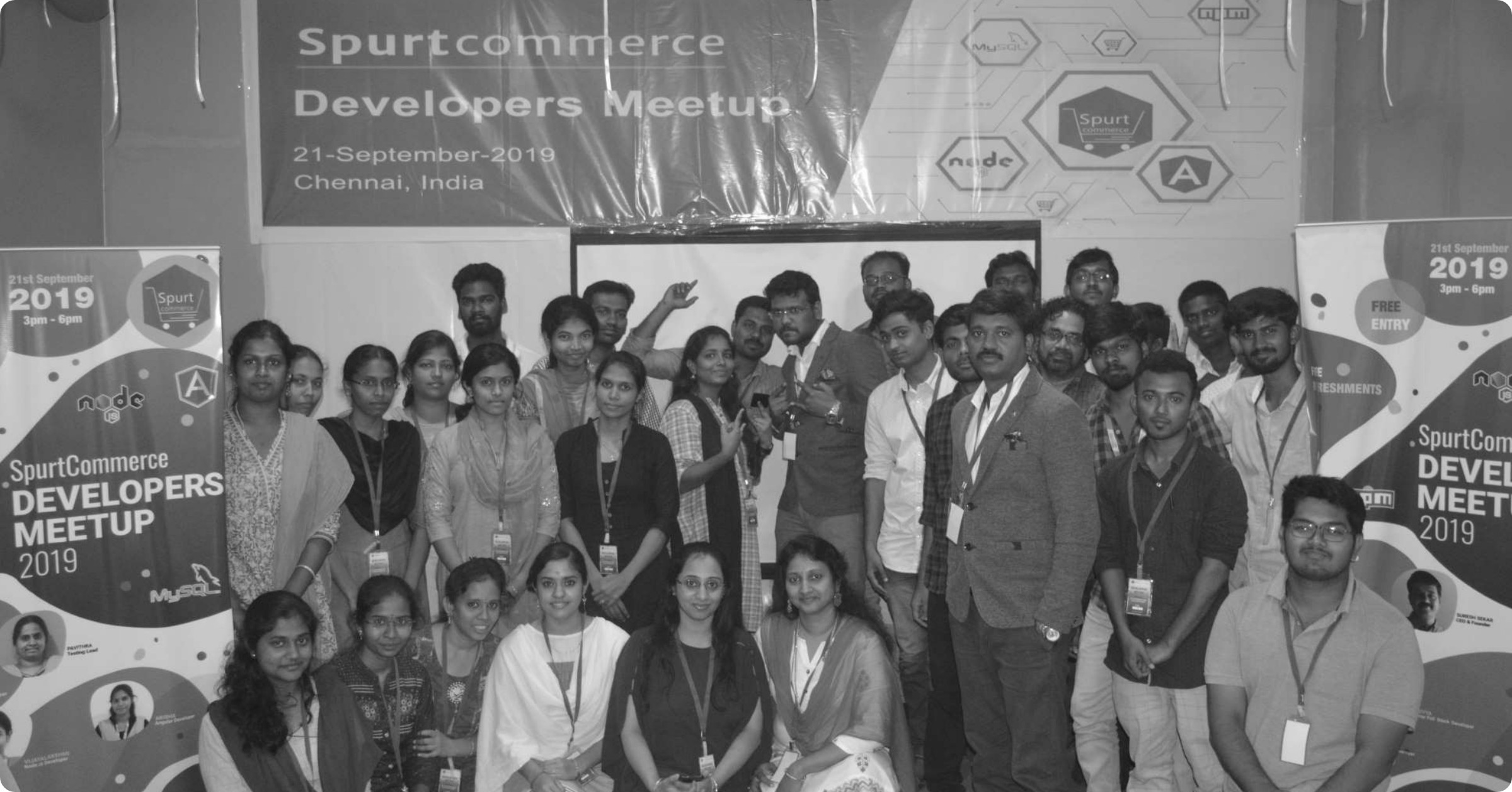STORY
Our Story – A Passionate Team of Experts Building a Scalable Open Source Future for Ecommerce

It all started with a question.
In the early days, most ecommerce platforms were built using PHP—Magento, OpenCart, and a few others were widely used. But they didn’t offer the speed, flexibility, or modern architecture that developers craved.
At the same time, JavaScript was booming.
We were a team of developers who loved clean code, scalability, and the open-source way of building. We asked ourselves:
“What if we built an ecommerce framework that’s API-first, lightning-fast, and truly developer-friendly?”
That question became our vision—and the foundation of SpurtCommerce.
The First Commit
In late 2019, we started building. We chose Node.js and Express.js—powerful, lightweight technologies with strong community support. We knew we wanted a decoupled architecture, where the frontend and backend could evolve independently. In 2020, we released SpurtCommerce v1.0, our monolithic base version—fast, clean, and purpose-built for ecommerce.

The Momentum Builds
After the initial release of SpurtCommerce v1.0 in 2020, something remarkable began to happen. Developers started taking notice of our clean architecture and open-source flexibility. Word spread organically, and businesses—especially those looking to move fast—started experimenting with our platform.
Then the pandemic struck. Like many, we adapted to a remote work model. But instead of slowing down, it gave us the space to focus even more on the product. We listened closely to early adopters. They didn’t just want a framework—they wanted a scalable engine that could be customized to their unique business needs.
A few of these users believed in our vision enough to fund custom features. These initial projects helped sustain our team and gave us a steady inflow of real-world feedback. It was no longer just code—we were solving real ecommerce challenges.
From 2021 to 2023, we steadily released updates, improved performance, added new modules, and strengthened the core. We evolved our documentation, enhanced admin panels, and introduced features that merchants and developers actually needed.
This phase not only validated our vision but also gave us the confidence to think bigger—laying the groundwork for our enterprise journey.
Evolving to Enterprise
By 2023, SpurtCommerce had grown beyond just an open-source project—it was becoming the foundation for serious ecommerce businesses. As our user base expanded, we started receiving requests from companies looking for greater control, long-term support, and enterprise-grade capabilities.

That’s when we introduced the SpurtCommerce Enterprise Edition—a powerful package that offered full source code access, priority support, and complete white-label freedom.
But we didn’t stop at packaging. We knew the architecture had to evolve. So we rebuilt the core platform into a Microservices Architecture, making it modular, scalable, and easier to deploy across diverse use cases.
This shift allowed larger businesses to adopt SpurtCommerce and customize it to their specific workflows—whether B2B, B2C, or hybrid models.
It was a defining step in turning SpurtCommerce from a developer tool into a product trusted by growing companies worldwide.
Where We Are Now
Today, SpurtCommerce powers ecommerce platforms across industries and geographies.From agile startups to established enterprises, businesses rely on us to build scalable B2B and B2C marketplaces. Our modular architecture supports rapid customization, performance, and growth.With a dedicated team of over 25 developers, we continue to improve and innovate.Both monolithic and microservices editions are now in use across diverse customer needs.SpurtCommerce has become a trusted, developer-first choice for modern ecommerce.
What’s Next?
We’re just getting started. As ecommerce evolves, intelligence will drive the next wave of innovation—and we’re embracing it fully. We’re actively integrating AI-powered capabilities such as smart search, product recommendations, and conversational checkout to make the buying experience smarter and more intuitive. Alongside this, we’re building powerful tools and extensions, enhancing multi-tenant capabilities, simplifying frontend integrations, and improving documentation and onboarding. Our mission remains clear: to make launching and scaling ecommerce marketplaces faster, smarter, and entirely within your control.





























 Company
Company
 Contact Us
Contact Us
 Our Team
Our Team
 Our Support
Our Support
 Our Customers
Our Customers

 EN
EN ES
ES AR
AR